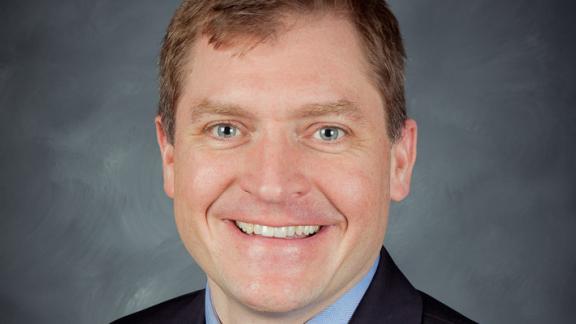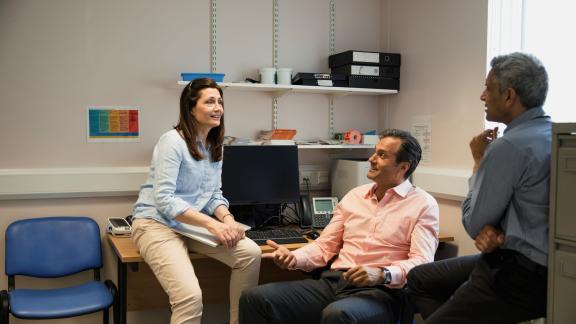Health and social care desperately need positive change agents

Reflecting on the challenges facing health and care services on both sides of the pond, Jason Helgerson, director of New York State’s Medicaid programme, warns that without change agents, darker days lie ahead.
Nothing lasts forever. That is as true for public service as it is in every other aspect of life. My time as a public servant comes to end on 6 April, after more than two decades of service in three American states, with most of that time dedicated to driving system change in health and social care.
As I prepare to depart, I have begun to reflect both on my experiences as well as on the state of health and social care on both sides of the Atlantic Ocean.
Over the last two years, I have had a unique opportunity to interact with colleagues in both the US and UK. I have concluded we have far more in common than many believe. The same vulnerable people that fall through the cracks of one system create challenges in the other. The need for greater collaboration and focus on meaningful outcomes is also common across both nations.
While we may spend far more in America, our health and social care providers feel many of the same stresses that I saw when I toured providers in England last year. You see pressure and strain on the faces of direct care providers in both nations, caused by not enough resources to do the job – at least as it’s currently defined.
So how should both countries respond to this common challenge? My recommendation is that we turn to those best positioned to lead the way to innovation and improvement – positive change agents. Only through innovation will we be able to relieve the stress felt on the front lines of each system.
We need new care and payment models that free providers to improve care in ways that work better for patients and communities. We need to harness technology and make care more humane by truly making the system patient-centered and not provider-centered. Change agents at every level of each system must be found and empowered to lead innovation. Without them, we have darker days ahead.
Who are these change agents?
They are a relatively small group of people who have a unique skill set that allows them to lead change from any level of any organisation. They inspire their colleagues and help craft creative solutions often with little or no additional resources. They do all of this even when the odds are stacked against them and others have given up hope.
The good news is that change agents are already among us now. A nurse who turns bureaucratic processes into humane care through pure empathy. An accountant who works extra hours to find ways for her organisation to purchase supplies more cost effectively, so that every pound goes a bit further. The care home provider that creates a simple red bag that contains important information and personal effects, so that when a resident goes to the hospital they get the care they need and don’t lose their dignity along with their teeth.
Change agents are among us. The key thing is to identify them and empower them within the system.
There is even more good news. Change agents are both born and developed, and one of the best places on the planet for developing change agents is found within NHS England. The School for Change Agents, which was created by NHS Horizons, is a Hogwarts-like programme for would-be change agents who want to make the world a better place.
We in the US absolutely love the programme and have been participating in the online educational programme for a couple of months. It is chock full of useful tips for how to be a change agent, regardless of where we work. I encourage everyone to sign up and become a ‘certificated’ change agent.
The life of a change agent isn’t easy
While you may have the skills and motivation necessary to be successful, not everyone you meet feels the same. Most people, with the right effort, will respond positively to change agent actions but others will be less enthusiastic.
Of all the individuals that change agents will encounter, there is a small subset of individuals that are especially dangerous. I call those individuals – to steal another Harry Potter term – dementors.
Dementors are the opposite of change agents, because they lack openness and positivity and become stalwart defenders of the status quo. Dementors care less about making the world a better place and more about what change means for their personal power, prestige and workload. We have all dealt with them.
While they need to be managed, confronted or avoided – depending on the circumstance – what makes them dangerous is that they can drain the energy out of change agents, which in turn denies an organisation the lifeblood it needs to innovate. It’s important to note that while there are certain people who are full-on dementors, we are all capable of acting like dementors from time to time. We need to watch our own reactions to the ideas and efforts of others so that we don’t dismiss them just because the idea didn’t come from us or because it may require changes in how we work. As I said, being a positive change agent isn’t easy.
My parting plea is that, no matter what happens, change agents will not allow the dementors in their midst to wear them down. We need them in the public service! We need their positive energy and creative problem-solving more than ever, and I call on them to keep up the fight.
I also call on leaders in both systems to create the right work environment so that change agents can flourish, and can lead and prevent dementors from standing in the way of positive change, especially at this crucial hour.
Jason Helgerson is the outgoing director of New York State’s Medicaid programme. Follow him on Twitter @policywonk1


